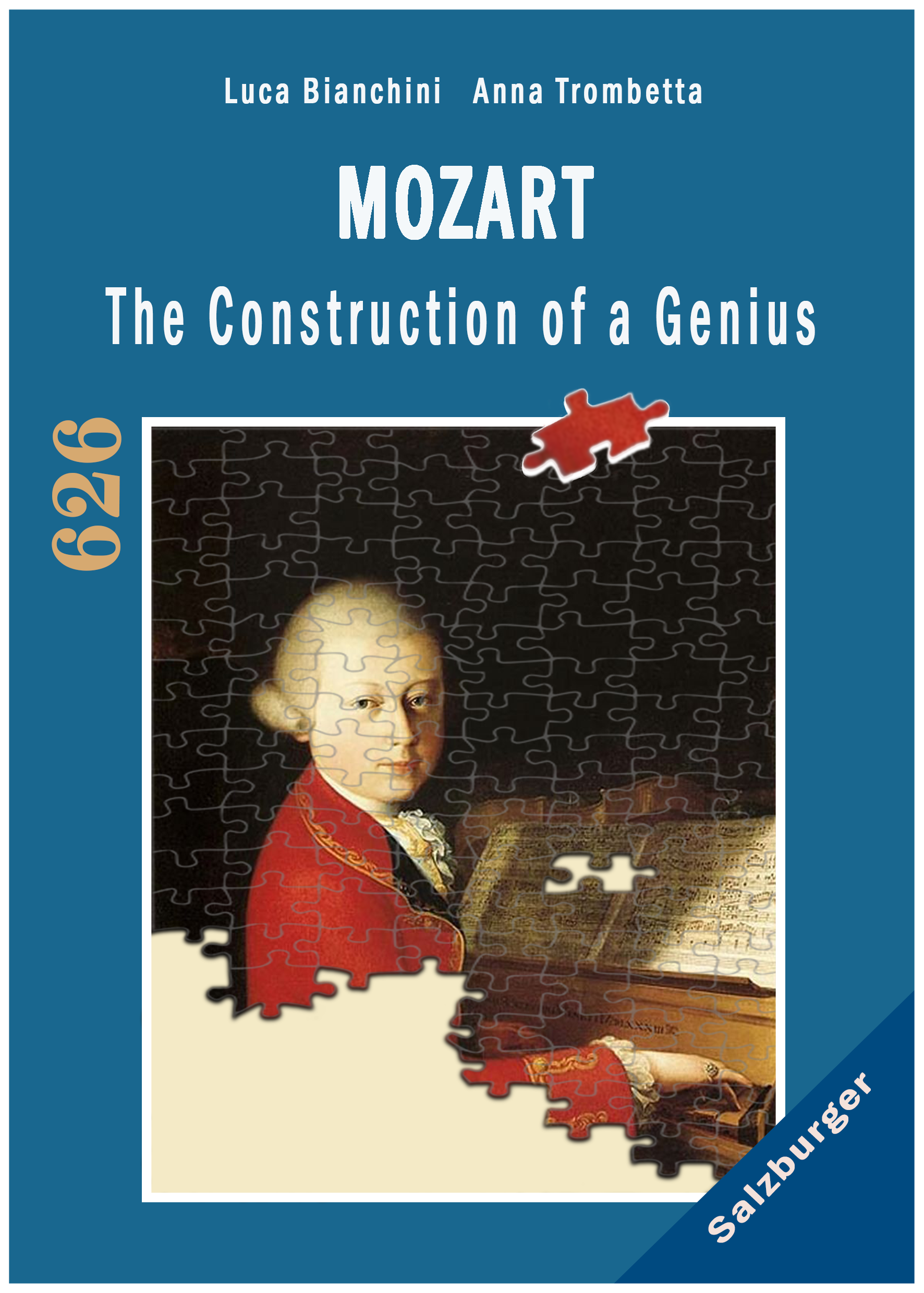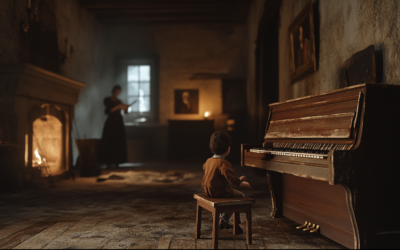Wolfgang Amadé Mozart
The Mozart Myth Unveiled: A Deeper Look at the Deception Surrounding His Legacy
Mozart’s legacy is far from the untarnished narrative of genius that history would have us believe. The web of deceit woven around his name by those closest to him, including his own widow, reveals a much darker story.
Mozart The Construction of a Genius: The Untold Story
Mozart: The Construction of a Genius” uncovers how the myth of Mozart was crafted after his death in 1791, initially to support his widow, then exploited by publishers, and later used to elevate Mozart as a cultural icon. Bianchini and Trombetta reveal that the personal catalogue attributed to Mozart is a late 18th-century fabrication, challenging long-held beliefs about his legacy.
“Constanze Mozart was fully aware that the hymn attributed to her late husband was, in fact, the work of August Eberhard Müller. Yet, she perpetuated the lie, presenting it as a genuine Mozart composition—a deception that continues to mislead even today”
Mozart The Construction of a Genius
Wolfgang Amadeus Mozart is often heralded as a musical genius, but beneath the surface of this glorified narrative lies a web of deceit and fabrication that has distorted his true legacy. Far from the infallible icon of classical music, Mozart’s name has been misused and manipulated, particularly by those closest to him, to propagate falsehoods for personal gain.
The Forged Bass Continuo School
In 1796, an advertisement in the Wiener Zeitung promoted a so-called ‘undiscovered manuscript’ by Mozart, known as the Bass Continuo School. This work, supposedly authored by the composer, was vouched for by none other than Constanze’s later husband, Von Nissen. Despite his assurances, the manuscript was nothing more than an elaborate forgery. Astonishingly, it took until the 19th century for this fact to be fully recognised, yet even today, the work is still mistakenly believed to be authentic in some circles. This incident marks just one of the many times Mozart’s name was exploited to sell fraudulent compositions.
Constanze Mozart’s Role in Perpetuating the Fraud
Constanze Mozart, Wolfgang’s widow, played a pivotal role in perpetuating these fabrications. Desperate for financial security, she repeatedly sold what she claimed to be ‘autograph’ versions of Mozart’s works, including his famous Requiem. Despite being incomplete drafts, she presented them as finished masterpieces, leading to her being publicly reprimanded for her dishonesty. Constanze’s actions reveal a troubling willingness to deceive, driven by her need to capitalise on Mozart’s fame.
The Role of August Eberhard Müller
Another key figure in this web of deceit was August Eberhard Müller, a musician who benefited from having his own compositions falsely attributed to Mozart. Among these spurious works were various pieces listed in the Köchel Catalogue’s appendix, including a hymn that Müller performed in Leipzig under the guise of a Mozart composition. Müller’s readiness to accept, if not encourage, this misattribution highlights the extent to which Mozart’s name was exploited by those eager to bask in his reflected glory.
The Enduring Legacy of Deception
Even years after Mozart’s death, these forgeries continued to circulate, with works like the Bass Continuo School and Müller’s hymn still mistakenly believed to be genuine Mozart compositions. The persistence of these fabrications underscores how deeply ingrained the myth of Mozart has become in the classical music world. The readiness of individuals like Constanze and Müller to distort the truth for personal benefit casts a long shadow over Mozart’s legacy, prompting us to question how much of what we believe about him is truly authentic.
You May Also Like
From Innsbruck to Bolzano
From Innsbruck to Bolzano, the Mozart family’s journey was a blend of strategic networking and missed opportunities, revealing the challenges of securing fame in 18th-century Europe.
The Myth of Mozart’s Sight-Reading Genius
Mozart’s so-called sight-reading miracles were less about supernatural talent and more about clever improvisation, as two key 18th-century witnesses make clear.
The Hidden Legacy of Michael Haydn
Mozart’s Symphony No. 37, K.444, is more Haydn than Mozart. How did this happen? A story of deception and misattribution unfolds.
The Myth of Mozart’s Education
For centuries, Wolfgang Amadeus Mozart has been celebrated as a musical prodigy, effortlessly composing masterpieces from a young age. However, when we peel back the layers of myth surrounding his early education, a different picture emerges—one in which his father, Leopold Mozart, plays a far more controlling and influential role than is often acknowledged. This article explores the true nature of Mozart’s education, examining how much of his early works can be attributed to his own genius, and how much was the product of his father’s meticulous and often self-serving guidance. Was Wolfgang’s brilliance entirely his own, or was it a crafted image designed by Leopold?
The Myth of Mozart’s Childhood
Mozart’s childhood is often romanticised, but behind the myth lies a more complex reality. This post explores the hidden dynamics within his family, questioning the traditional narrative of Mozart's early years and shedding light on the forgotten role of his sister,...
Bohemia or Moravia: Reconfiguring Music History
Why does music history insist on an Austrian narrative, when the contributions of other nations are just as crucial?







